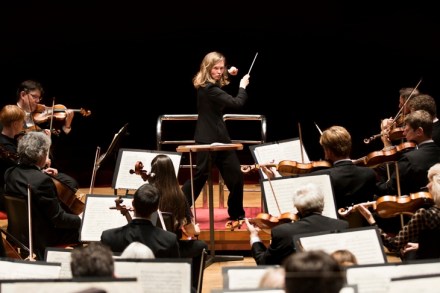A square dance in Heaven
It’s 500 years since Martin Luther pinned his 95 Theses to the door of the Castle Church in Wittenberg, sparking what would come to be known as the Protestant Reformation. His superficial complaint was against the corrupt practice of indulgences, the Catholic Church teasing money out of the gullible and persuading them that they could buy their way into Heaven. But what Luther, a professor of theology, really wanted was for God to be made accessible to everyone and for worship to be more intimate, more direct, and in the vernacular, not Latin. We think of him now as a man of the text, who believed that faith was so




















